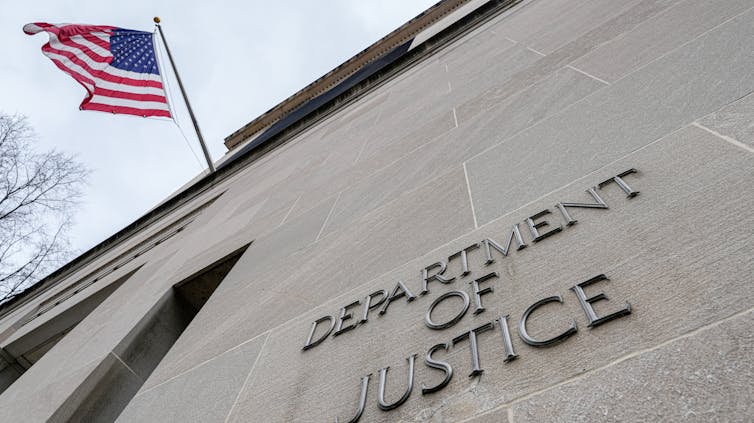Justice Department lawyers work for justice and the Constitution – not the White House

In the 1970s, President Richard Nixon tried to fire the Department of Justice prosecutor leading an investigation into the president’s involvement in wiretapping the Democratic National Committee’s headquarters.
Since then, the DOJ has generally been run as an impartial law enforcement agency, separated from the executive office and partisan politics.
Those guardrails are now being severely tested under the Trump administration.
In February 2025, seven DOJ attorneys resigned, rather than follow orders from Attorney General Pam Bondi to dismiss corruption charges against New York Mayor Eric Adams. Adams was indicted in September 2024, during the Biden administration, for alleged bribery and campaign finance violations.
One DOJ prosecutor, Hagan Scotten, wrote in his Feb. 15 resignation letter that while he held no negative views of the Trump administration, he believed the dismissal request violated DOJ’s ethical standards.
Among more than a dozen DOJ attorneys who have recently been terminated, the DOJ fired Erez Reuveni, acting deputy chief of the department’s Office of Immigration Litigation, on April 15. Reuveni lost his job for speaking honestly to the court about the facts of an immigration case, instead of following political directives from Bondi and other superiors.
Reuveni was terminated for acknowledging in court on April 14 that the Department of Homeland Security had made an “administrative error” in deporting Kilmar Abrego Garcia to El Salvador, against court orders. DOJ leadership placed Reuveni on leave the very next day.
Bondi defended the decision, arguing that Reuveni had failed to “vigorously advocate” for the administration’s position.
I’m a legal ethics scholar, and I know that as more DOJ lawyers face choices between following political directives and upholding their profession’s ethical standards, they confront a critical question: To whom do they ultimately owe their loyalty?

Identifying the real client
All attorneys have core ethical obligations, including loyalty to clients, confidentiality and honesty to the courts. DOJ lawyers have additional professional obligations: They have a duty to seek justice, rather than merely win cases, as well as to protect constitutional rights even when inconvenient.










